7 Things To Know When Starting a Preteen Ministry!
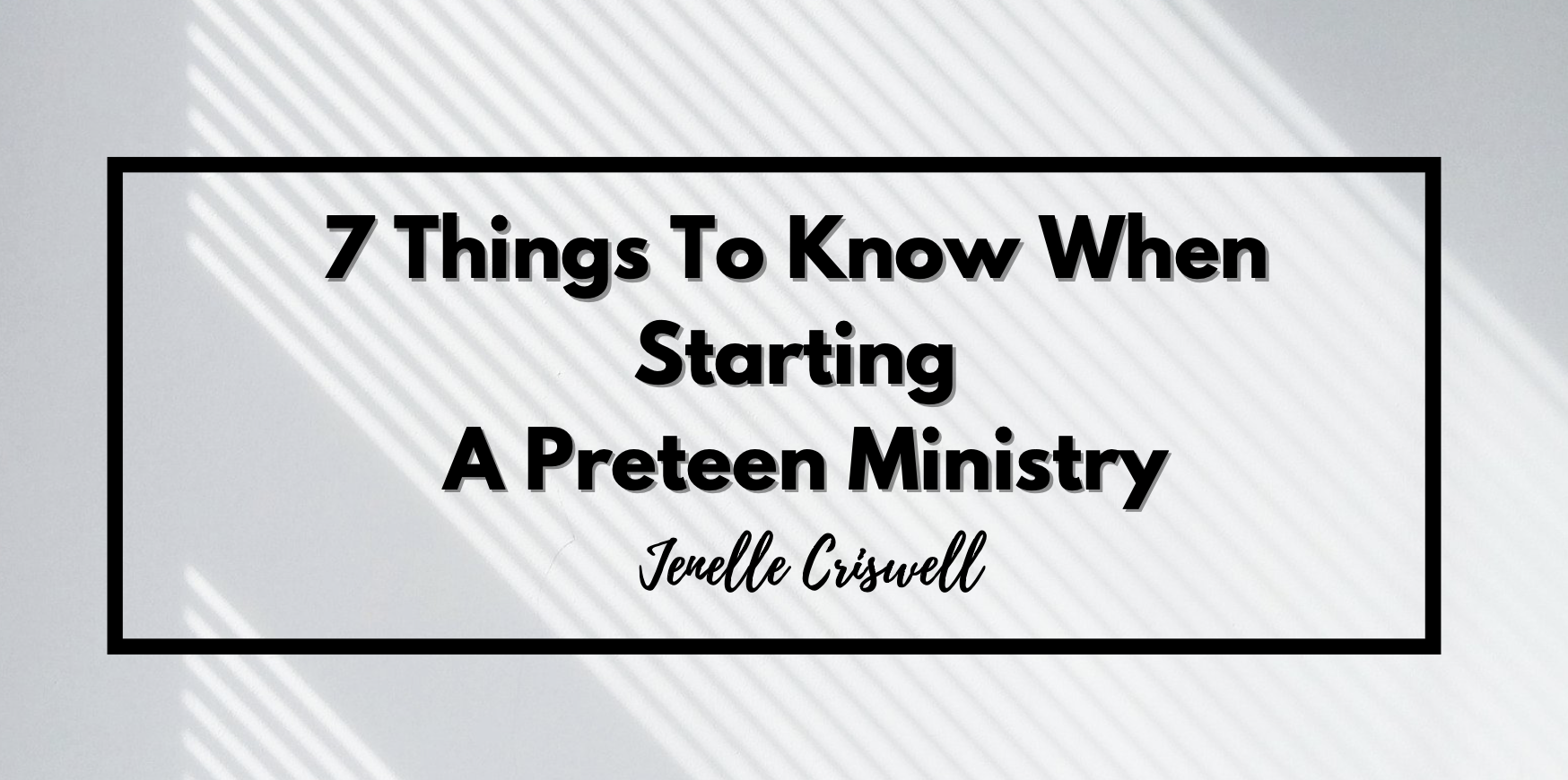
Preteen ministry is one of the growing trends in churches. Research shows that after 5th grade, kids will be leaving the church. Some reasons are it’s the age where parents allow their kids to stay home or have more independence, also get lost in the world of church and start thinking like a scientist, not just black and white. A lot of faith-based information overwhelms them and they are unsure of what or who God is and why they should believe. When I was first developing the ministry, our numbers were in the 20s. After research and trial and error I made 7 changes to my ministry that ultimately doubled my numbers. It has taken me 5 years to get here so hang tight
Let’s jump right into it.

When I started this ministry, I was in a small classroom that doubled as a preschool classroom during the week. Multipurpose campus… awesome but hard. We had about 20 preteens that would come regularly. When they walked up the stairs, this is what they saw: light blue, green, and purple walls with alphabet letter people everywhere. There were snowflakes hanging from the ceiling and a bulletin board with the preschooler’s names on it. They would often comment on how it would bug them.
So I went on a search where I found a storage room that was boring but had potential. I got permission to use the space and I chose 3 colors: light grey, blue, and orange. I transformed the room into a place that was their own. The room has changed almost every year based on what the kids are into but also for efficiency.
I recently built small group corners. I know this sounds crazy… but I had one large square room. My leaders were finding it hard to have conversations around the tables because other groups were too loud or distracting so I built walls. Literally. I then painted them to identify each small group's space and then I put them around the 4 corners of the room to make a “room”. I ended up getting couch donations and put them in the area as well. I wanted each small group to have a space that they could go to each week and have it be their own. They take ownership of the space by leaving notes, drawings, or prayer requests on the inside walls. It is a space for them to go that is theirs.

Events are another crucial part of helping grow your ministry. Events need to be both inside the church and outside the church. Preteens need a space where they feel comfortable inviting their friends without all the church pressures. In addition, if you have them help you plan the events they have more ownership. The preteens are excited to share what they planned with their friends and invite them to come along.
As an example, I just did a Video Game night for the first time and I was sure that my attendance was only going to be low, but boy was I wrong! I had 28 kids and out of those, I knew 6 from my ministry. I had 5 attend the next Sunday and a father even stepped up to volunteer. This event created a fun, easy place for them to invite their friends. I give them the idea of the video game night, but I let them come up with the details like food, theme, prizes, what kind of systems they wanted to play on, and what games they wanted to play. Allowing the students to plan the event gives them ownership of the event. They got excited to help in the planning and there was less stress on me. I call that a win-win!
They are fourth and fifth graders so they couldn’t plan it all. I started by recruiting volunteers and creating a point system on who would win the tournament. As the event got closer, I made sure to have all the supplies: snacks, games, and check-in set up. I even employed my husband (a gamer) to help me set up and make sure everything was up and running before the event!
Small groups are HUGE! This gives them a place to belong not only during church but also during the week. I started by recruiting small group leaders. I went out to coffee with a few that seem interested and laid out the expectation that this would be a weekly commitment and I would be available to help them lead. I could help them come up with content ideas and help navigate hard conversations. In the end, I only had 2 main leaders stick around but they know the time commitment and are sold out.
My leaders are set up to meet once a week after church hours. This time allows for the preteens to grow in their faith and also with each other! They are meeting every week to share with each other about what is going on in their world. The small group is also very diverse in a great way. We have kids who come from broken homes one who lives with grandparents and even a few with behavior issues. None of these differences matter to them, they are thankful they can connect with their peers. Small Groups have kept a family at our church when all of their friends left because their daughter had a place; she had leaders and friends willing to feed into her outside of the church.

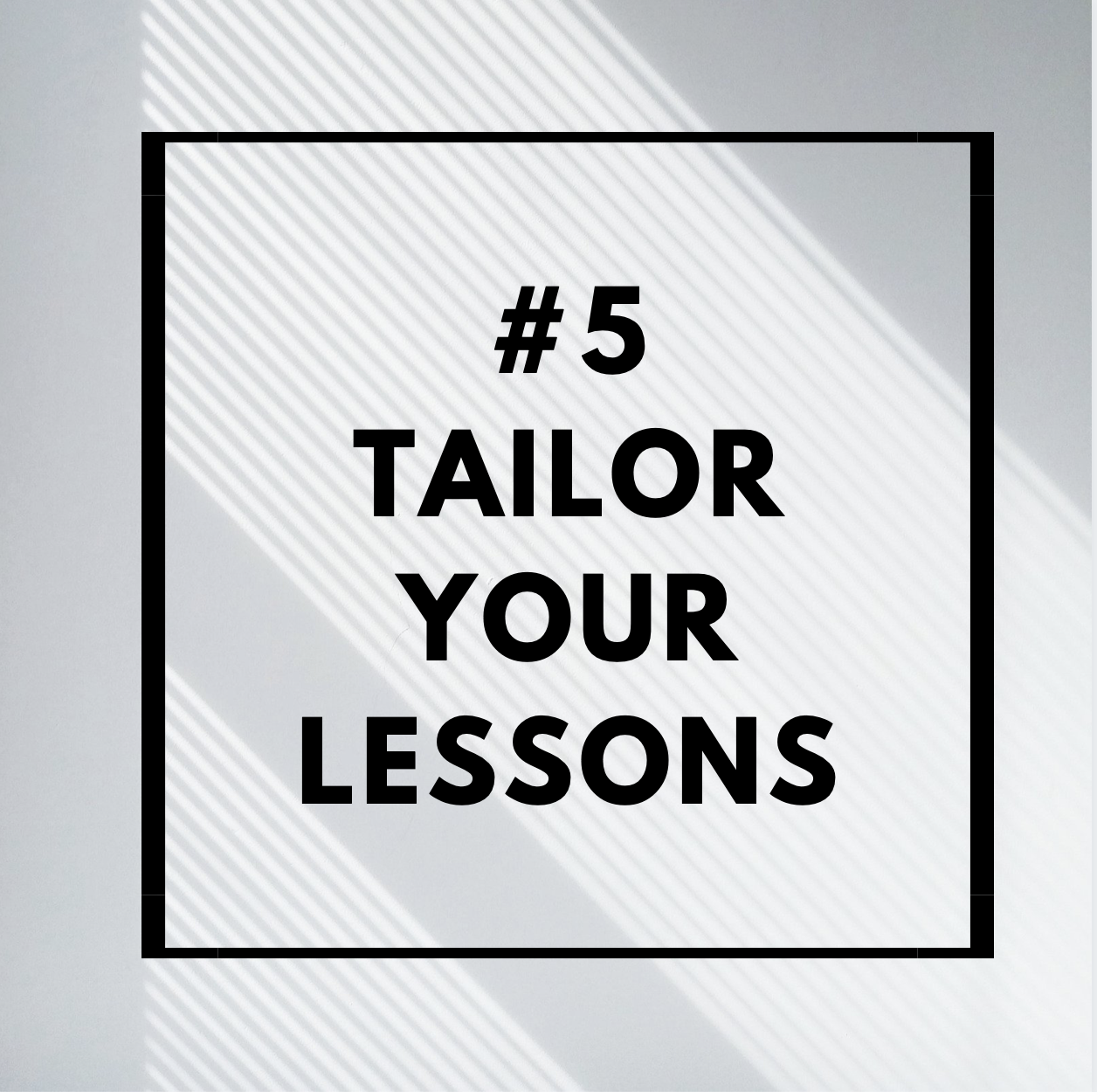
I would love to be in a place where I could write my own curriculum but when trying to grow a new ministry the time or resources are sometimes scarce. BUT, I take what I am given and change most of it; basically only keeping the bible story.
Using a pre-written curriculum allows me to utilize the main point and graphics and allows me to cut out a lot of information that is not needed for our specific group.
Preteens will only pay attention for as many minutes as the age in years they are. Most preteens are 9 to 11 which means you have 9 to 11 minutes to get your point across. Let me repeat that, you have 9 to 11 minutes to get your point across. If you don’t keep your lesson short and brief, they begin to hear you like Charlie Brown’s mom.
Cutting out all the extra fluff allows me to insert my own personal experiences. What story in my life fits with our forgiveness lesson? What story do I have that would stick with them? Start with personal experiences and then use the bible story to back it up; then finish with the solution to your story. They will remember your own struggles and funny stories and the word that connected to it more than just listening to you tell bible stories. That is hard to say as a pastor but it’s true!
The curriculum I got for one particular lesson was about the story of Adam and Eve and how they hid after they had sinned against God. It was a 13-page document on the story told from many different people’s perspectives, but with a random game in the middle and an added worship song. I cut it all and started with a story that I remember when I was hiding from my own parents. I now call it the Forbidden Kool-aid Story. I told the kids about how I took red Kool-Aid into the forbidden room at my parents’ house, “the blue carpet room” (everyone has one of these rooms!). I shared how I went into the room when my mom wasn’t home and, of course, I tripped and *BOOM* red Kool-Aid all over the carpet. I told them how I tried to clean it up the best I could, but I ultimately just hid. I then connected it to how often times when we lie we hide, we don’t want to be found, like the story of Adam and Eve. I can tell you the kids still remember it. I recently had a previous 4/5 kid come up to me and say “Hey Ms. Jenelle, remember the Kool-Aid story and how you ruined your parents’ carpet?”
IT STICKS, I promise.
One way you can do this is to treat them with the maturity level that they feel they are at. I have a lot of parents saying, “my kid is young, they shouldn’t be a called preteen.” They may still be considered a “kid” in age but what they are experiencing is what most of us experienced during our first year of high school. It’s crazy to think of all the conversations and peer pressure that is hitting them now. We could be the ministry to treat and help them or we could be the ministry to ignore the issues they face.
There are a few ways to tackle coming alongside these kids.,
- Treat them like teens. Talk to them like they are teens. They will be having hard conversations, or want to be having hard conversations on sex, drugs, identity, or faith. Would you rather they seek the answer to these questions from a trusted church leader or the internet? Tell them, but direct them in love and truth. Don’t be afraid to answer their questions. Preteens come up with questions that some adults probably haven’t thought of.
- Give them a simple but effective outlet on how to ask their own questions. I made a question box for them to ask questions and to receive my answer on it. I generally take all questions home on Sunday and try to answer them all by Monday morning. I put them back in their small group leaders’ binder to be handed back to them on Sunday. I will often read some of them out loud at the beginning of my lesson and I can tell you the questions they ask and respond to them as a group has been so effective. I get questions about the holy spirit, God, and baptism. I also receive questions like “my teacher is teaching evolution and the bible talks about creation…what do I need to believe?”, “Why doesn’t God fix all the bad things in the world?”, ‘Why did God create people with autism?”
If you would like a sample, this is the document I created. Just go to the Contact Me tab.
If they are asking these types of questions on paper, they are discussing with their peers and pondering them. Your ministry can be a place where your students learn and explore their faith if you provide them the opportunity.
It is tough on you as a pastor, you will need to educate yourself on some of the topics prior to responding but it’s so worth it! A bonus to having them asking questions is you now know what they are struggling with and can use that in your lesson.


What is relevant to them in their current world? Tik Tok, YouTube, Instagram, and videogames? Do a survey of what they like and use that to your advantage. Pick a YouTube video from someone that they are watching and connect it to your lesson. They will love it and it combines their worlds! If you don’t know how to use the latest technology or gaming system let them teach you! It is okay, they would love to tell you what they are passionate about and how they use it!
Remember that if you are having trouble growing your ministry, or even just trying to start one, try implementing one or more of the 7 changes I’ve discussed here. Take it one at a time so that you or your ministry aren’t overwhelmed by all of the change.

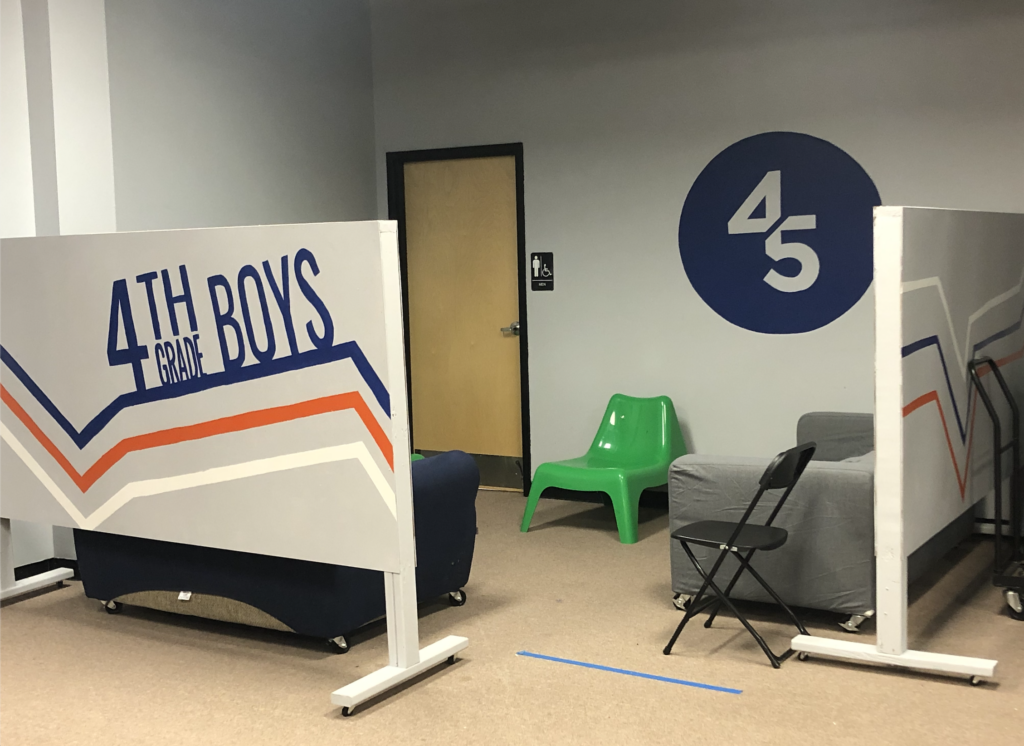

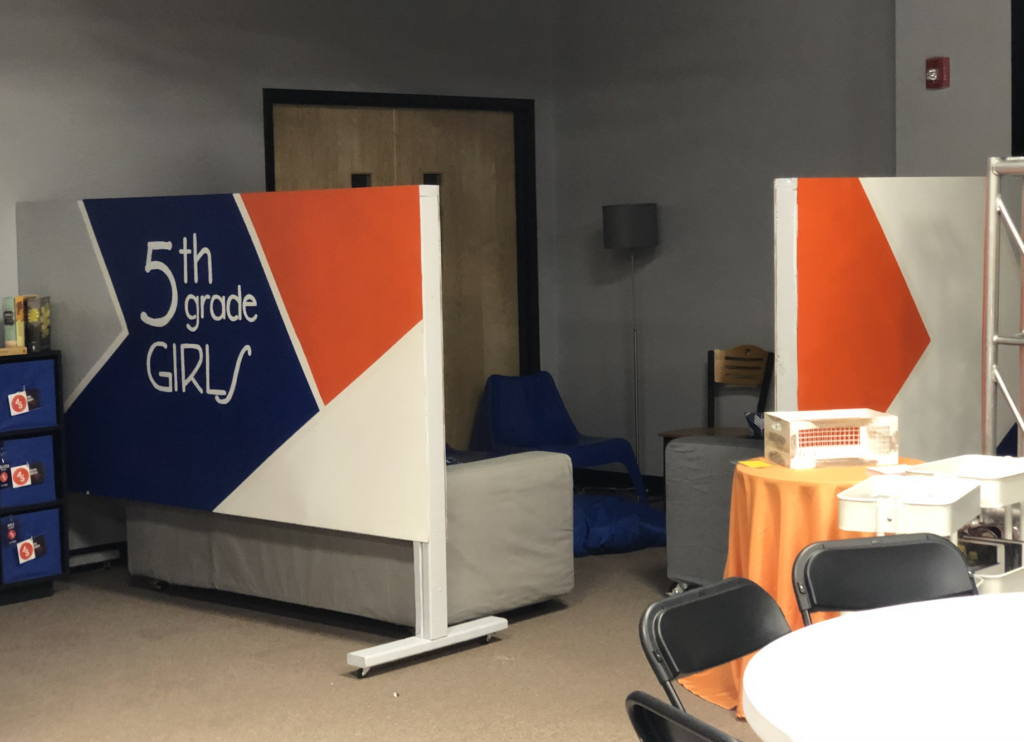
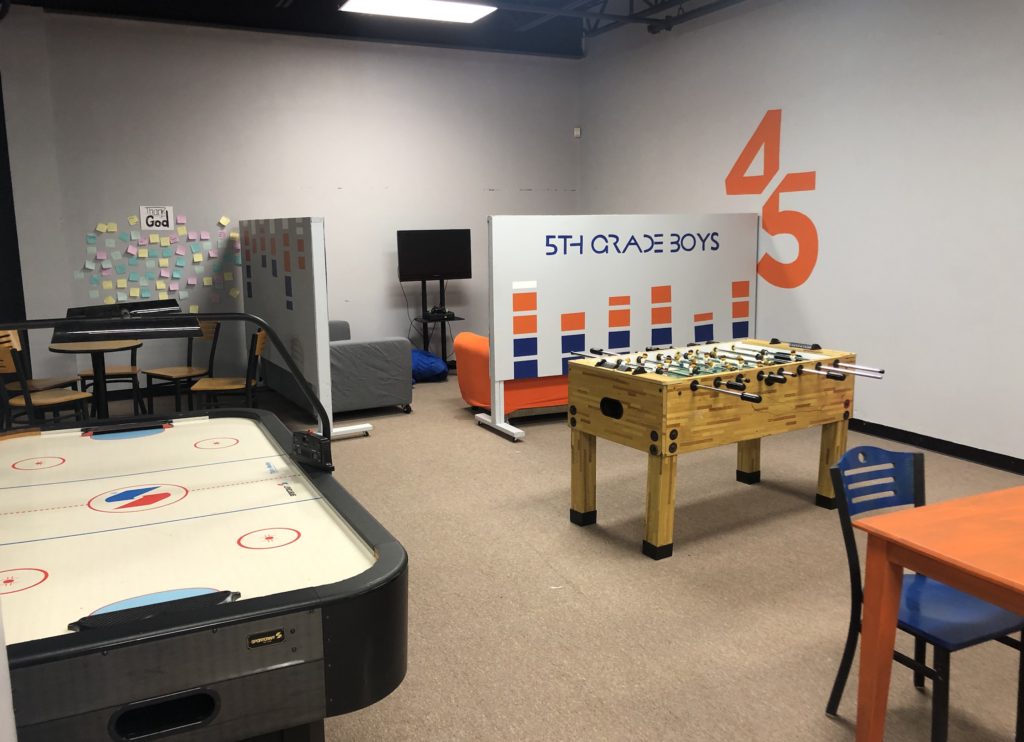

Michele Martel
Hey Jenelle,
I just read this and I love it….I guess mostly because I see it in action every week and you have really created and super special environment and created such great ideas with the kids….
One thing in your Blog which really struck me is the length of attention span preteens have! That really encouraged me as I know in my small group, a quick reading of a devotional and a conversation rapidly turns into oh, let’s play this and do this….ahahah!
I struggled at times feeling like I wasn’t “teaching” them enough, but this really reinforced what I believe is important with small groups…connections with adults they can trust as well as with their peers.
Thank you for your blog!
Plan for a Successful Work Week – Jenelle Criswell
[…] come up with. (if you are not sure what I am talking about make sure to check out my other blog, 7 Things To Know When Starting a Preteen Ministry). This is also when I update my leadership evangelism list…l look at where certain volunteers […]